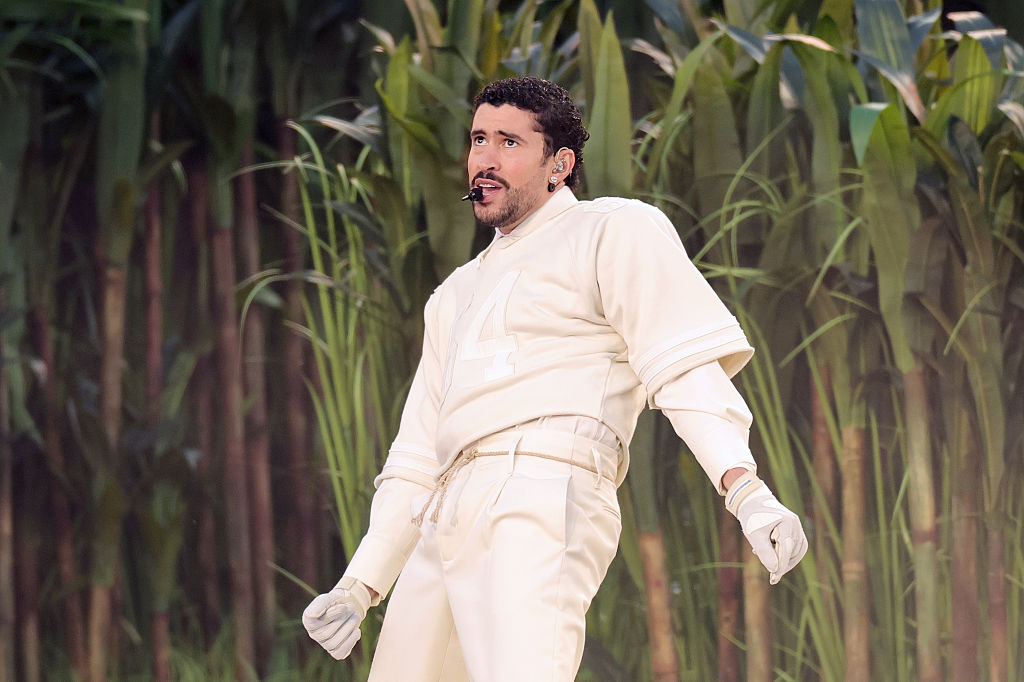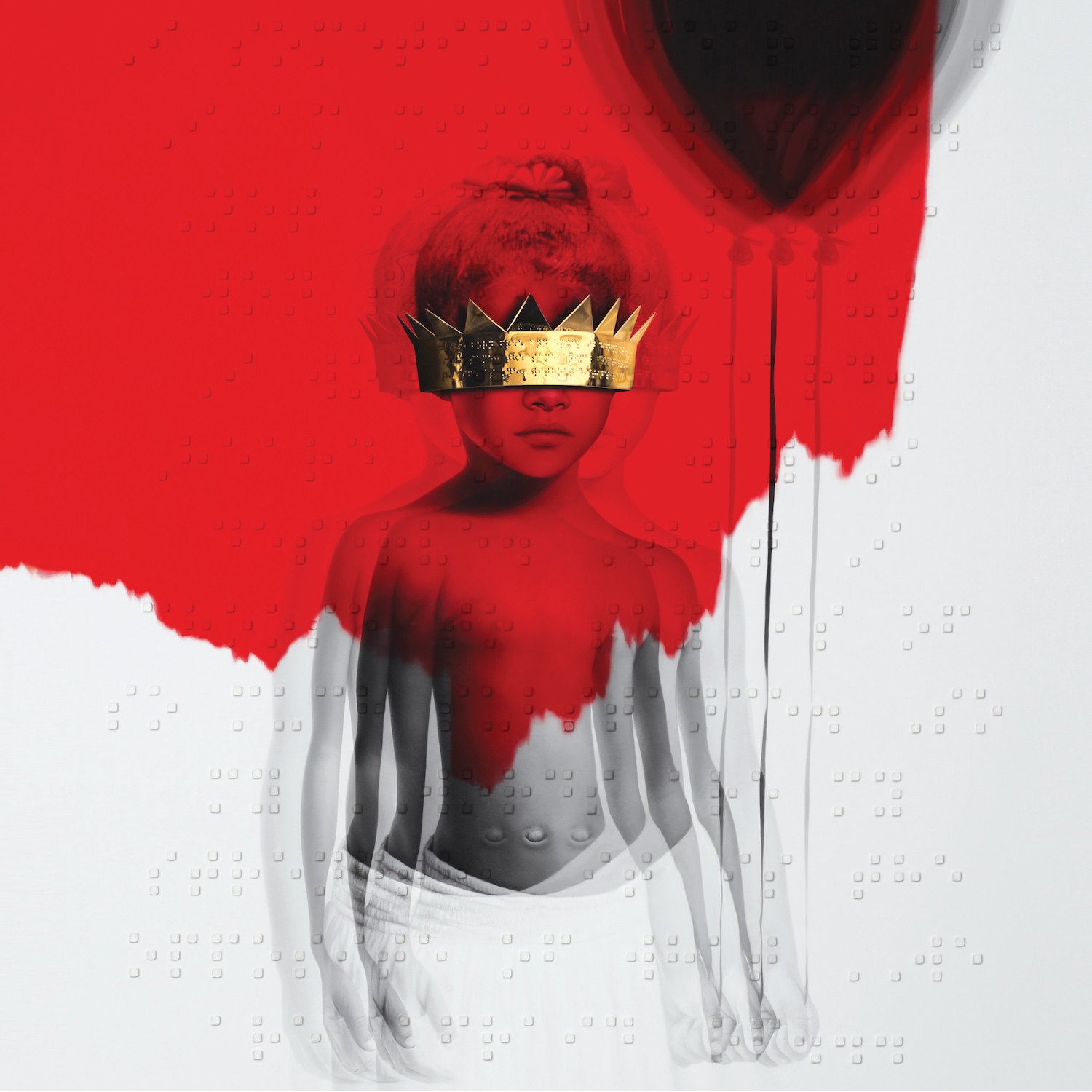- Topshelf
- 2013
So much of childhood is laid out to prepare you for adulthood. Sports instill teamwork and respect for authority. School programs you for the workforce. Chores, then summer jobs, and then eventually job-jobs, teach you the value of a hard-earned dollar, or something intimidatingly folksy like that. But forget all of that — you ever jump off of a large rock (perhaps even a cliff) into a body of water when you were a kid? Nothing trains you for the real world of risks, peer pressure, exhilaration, fear, and courage like that. Life comes at you fast, and so does the cold smack of the surface.
The cover of Whenever, If Ever — the debut album by Connecticut emo band The World Is A Beautiful Place & I Am No Longer Afraid To Die, released 10 years ago this Sunday — depicts a gangly, pubescent kid taking such a plunge into a green, murky swimming hole. The sprawling band, then comprising eight members onstage and 10 on-record, was audibly restless, unsatisfied, and desperate, straining at their tethers to escape their hometowns (a couple are from West Virginia; most hail from Willimantic, CT, which bore the nickname "Heroin Town" throughout the 2000s). The artwork screams: Fuck it, let's jump.
But there's also a helplessness there, a sense that, perhaps after a few early tours, the outside world may not be as welcoming or even as exciting as the classic "teen escapes small town for big city" trope makes it out to be. This is what fills your head a split second after you take what may have been an ill-advised leap of faith: Maybe that cliff was too big, maybe I'll get hurt. For a brief moment you're free, but fear takes hold even more quickly than gravity.
The first proper song on the album, "Heartbeat In The Brain," throws you headlong into this zero-G moment of uncertainty, its early-climaxing structure mimicking a diver's arc and its frantic lyrics flailing around seeking both independence and community in "a city so big that it is bound to keep your secrets." Even if you weren't paying attention to TWIABP in the previous three years, during which they'd released a handful of demos, EPs, and splits, the first eight minutes of Whenever, If Ever lets you know exactly who you're dealing with.
Yes, they're maximalist, but in a more drawn-out post-rock sense than an everything-but-the-kitchen-sink Come On Feel The Illinoise sense. Horns and strings and gang vocals and that one wiggly Casio synth are piled in layers atop a rock band, building a steady gradient rather than Byzantine spires and buttresses. TWIABP work with a similar palette as 2000s indie rock sensations like Broken Social Scene, Wolf Parade, Explosions In The Sky, or Arcade Fire, but with one crucial difference: they're emo.
Despite the two genres' similarities, the gap between them wasn't some loosely defined "I know it when I see it" deal. For dedicated fans of either style, the slight differences were immediately apparent. In TWIABP's case, it hinges on the vocals, which go for it in a way utterly devoid of the self-consciousness you'd get in a lot of indie rock of that era.
The bands of the "emo revival" (or, if that term turns you off, "fourth wave") of the early 2010s were mostly linked by association. Emo bands weren't on Captured Tracks or Sacred Bones or Jagjaguwar; they were on Topshelf, Tiny Engines, or Run For Cover. Snowing, the Hotelier, and Joyce Manor may have all sounded wildly different, but it wouldn't have been as shocking to see them on the same bill as it would have to see one of them paired with a decidedly "indie" band that hewed closer to their actual sound. As ex-TWIABP member Nicole Shanholtzer put it in 2014, "There is no way we'll ever be put on the same show with Parquet Courts."
Formed in 2009 with Shanholtzer on drums, Thomas Diaz on vocals and keys, Devin Spector and Tyler Bussey on guitars, and Joshua Cyr on bass, the band quickly became defined by their rapidly mutating lineups, a reputation that persists today (Cyr is the only original member still in the band). They relentlessly gigged around the Northeast in their first few years of existence, and from one show to the next, they could seem like a completely different act. I first caught them in spring 2011 and they were far from the band they'd become on Whenever, If Ever — gawky, a little self-serious, and completely blown out of the water by headliner Algernon Cadwallader (now that was a show). But instead of attempting to streamline their formula, TWIABP kept expanding outward, adding more guitarists, more vocalists, strings and horns by the time their debut rolled around. They barely fit onstage together, but they sounded incredible. Their execution had finally caught up to the outsized vision they'd dreamed up years prior.
Whenever, If Ever sounds like it was a pain in the ass to write and record. Whereas TWIABP put out two smallish projects per year in 2010 and 2011, they only released a one-off 7" (an early version of eventual album cut "Gig Life") in 2012. Years later, guitarist/trumpeter/producer Chris Teti characterized the the band's maximalist mission during that era as, "We want to add this extra part here, we're trying to reference this kind of band or this kinda music, we want to add an extra guitar here, and it was always a struggle."
Suffice to say it all paid off. Slotting an epic like "Heartbeat In The Brain" so early in the album was a bold move, but a concerted one. It's a mission statement, a promise that the foot will be on the gas pedal until the wheels fall off, and for the remaining 30 minutes of runtime, the band uses every second and note in service of an unabashed statement of youthful hope and desperation. At least half of these songs could serve as the climax of a lesser album — one does not simply sequence a chest-pounding banger like "Picture Of A Tree That Doesn't Look Okay," which pivots from sighing slowcore to an anthemic shout-along in just four minutes, at track four. The interplay between up to four guitars, the atmosphere lent by strings, keys, and horns on the margins, the dynamic vocal deliveries, and especially the solid bedrock added by drummer-for-good Steven Buttery ensure that every second of Whenever, If Ever drips with passion.
Prior to Ian Cohen's Pitchfork review of Whenever, If Ever, this wave of emo had received little to no attention from mainstream publications. The "revival" had been going on for years at this point — you could point to stuff like Algernon Cadwallader and Tigers Jaw's respective 2008 debuts as potential starting points — and it clearly had devoted fanbases and scenes (especially in the Midwest, Northeast, and Florida), but it was still a hard sell for Imperial Era Indie Rock listeners. Bands like Animal Collective, LCD Soundsystem, Grizzly Bear, Dirty Projectors, and many, many others had entered the new decade on a massive critical high, but by 2013, the excitement was starting to peter out. Cohen's review, published over two months after Whenever, If Ever’s release, notes emo's "reemerge[nce] as a viable genre of independent rock rather than a pejorative adjective," and as pessimistic as that sounds now, it was truly like that out here!
At the high school I attended in Washington State in the 2000s, "emo" was second only to homophobic slurs as the insult du jour. My friends and I were inundated with wussy-ass indie rock like Death Cab and Band Of Horses, but god forbid someone found out that one of us had Welcome To The Black Parade on CD. There were cool scene kids I should've given the time of day, there were other local bands I should've paid attention to (shout out the Blood Brothers and Fall Of Troy), but out of my fear of the "E" word, I didn't. To this day, some of my friends from high school flinch when I tell them that the Oso Oso album they shared in the group chat is Actually Emo, or when I claim that Death Cab and Modest Mouse have had a massive influence on the current crop of emo bands.
In the early 2010s, emo seemed to have a level of sincerity that was missing from big-ticket indie. I still loved all of that stuff, but something awoke inside of me when a friend played Some Kind Of Cadwallader for me a few weeks into freshman year of college. (I was so out of tune with emo that I literally asked, "What kind of music would you call this?") That led me down the wormhole to American Football, Sunny Day Real Estate, and all of the classics, but it also got me following a scene in real-time, going to grimy venues and hearing the world's worst singers play the world's best music. This was scrappy, urgent stuff — I'm talking Glocca Morra, Prawn, Joie De Vivre, Crash Of Rhinos (who, it should be noted, actually got an Ian Cohen Pitchfork review a few weeks before TWIABP) — so it's not entirely surprising that it didn't attract prestige until 2013.
This level of sweeping epic was simply not found in the basement-bound emo scene of the early 2010s until Whenever, If Ever dropped. Others, especially Empire! Empire! (I Was A Lonely Estate)'s 2009 masterpiece What It Takes To Move Forward, came close, but no one except TWIABP was gonna get an Arcade Fire comparison in the first paragraph.
OK, it's time to talk about "Getting Sodas." With its two tempo shifts, overlapping vocals, closing four-minute buildup, and de facto mission statement embedded in the lyrics, the titanic album closer might be the definitive TWIABP song. It starts as a meditation on death ("Took down your pictures and your belongings/ In boxes buried under the soil, in the yard behind our tree, you'll wait"), then gets philosophical ("Are our words more than sound?") before arriving at a stunning conclusion, with every member repeating the lyrics:
The world is a beautiful place but we have to make it that way/ Whenever you find home we'll make it more than just a shelter/ And if everyone belongs there it will hold us all together/ If you're afraid to die, then so am I
That's the anthem, get your damn hands up. It's hard to think of another artist summing up their whole vibe so succinctly. TWIABP came out of the gate a Russian nesting doll of in-jokes and recycled lyrics — "The Layers Of Skin We Drag Around" gets its title from a lyric from 2010's "Gordon Paul," a "Low Light Assembly" lyric about lying down in a parking lot nods back to another early song, etc. — but it all hinges on "Getting Sodas." Part of that refrain rephrases the first words on the album ("Whenever you find home, if everyone belongs there"), which makes the whole album something of a suite about seeking or creating an inclusive community as the world burns around you. And then there's the band's most recent album, 2021's Illusory Walls. It sounds like the work of an almost completely different group (because it basically is), but it closes with a cathartic redux of the "Getting Sodas" climax. It's a lot to buy into, but when TWIABP are on, they're one of the most rewarding bands around.
It's a miracle that TWIABP still exist today, let alone made it past Whenever, If Ever. It's hard enough to maintain a band that large, which accounts for the constant lineup changes, but in the years surrounding their debut, the group was rocked by a pair of departures. The first was founding member Thomas Diaz, who was as close to a "lead singer" as TWIABP had in their early years. His health problems led to canceled tours, delays in Whenever, If Ever’s release, and, before it even hit shelves, his decision to leave the band. The band's been fairly tight-lipped about what caused his eventual death in 2018 at age 32, but in "The Layers Of Skin We Drag Around," he briefly references his hemoglobin levels ("Tonight I feel just fine, I feel like a 2.5"), which has led fans to speculate that he'd been dealing with a low red blood cell count for years.
The second schism was more acrimonious. In the run-up to their 2017 album, Always Foreign, the band dismissed Nicole Shanholtzer, another founding member who was, at one point, married to vocalist/keyboardist Katie Dvorak. Again, no one's offered a ton of details on this, but several of Always Foreign’s songs scan as direct responses to Shanholtzer's behavior, and in 2017, an artist formerly signed to Shanholtzer's record label came forward with allegations of emotional and physical abuse.
TWIABP now consists of Dvorak, Cyr, Buttery, Teti, and David Bello, who replaced Diaz in the middle of Whenever, If Ever’s recording. They've all been in the band for over 10 years now, but with Illusory Walls, they took TWIABP in a wildly different, prog-metal-tinted direction (I've always suspected that this is a direct result of Teti taking the reins, but I have no evidence to back that up). With all of the turnover, they've lost some fans along the way, but aside from a few bumpy exceptions, I continue to admire the hell out of what this band does.
Looking back on TWIABP's tumultuous but thrilling past decade, Whenever, If Ever feels like a snapshot of lost innocence. It's not necessarily starry-eyed in its bracing coming-of-age narrative, but it's a fleeting communal moment, a culmination of sorts before the band even really got their feet underneath them. What remains rewarding about TWIABP is their treatment of their discography like a living, breathing entity, even as they undergo drastic changes. Anything's on the table to be revisited or forgotten. It reflects the lives of everyone who's had a hand in it, for better or for worse. It's depressing, it's affirming, it's extra, it's too much, it's comforting, it's embarrassing, it's a beautiful place. They had to make it that way. Jump in.
We rely on reader subscriptions to deliver articles like the one you're reading. Become a member and help support independent media!






